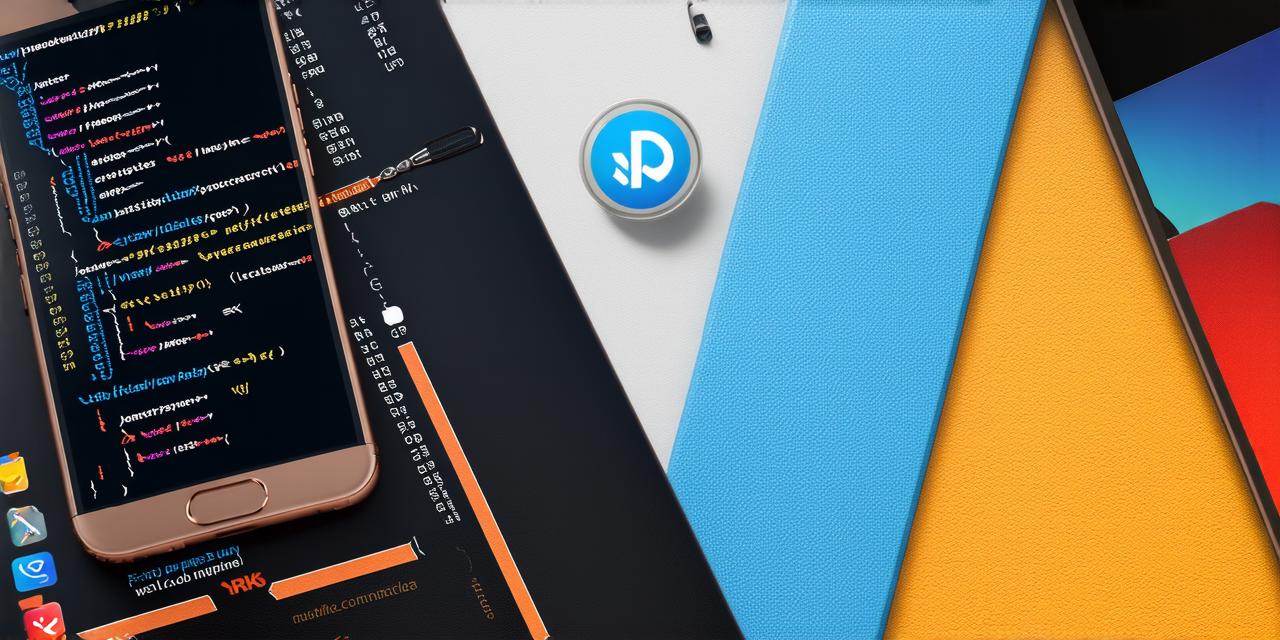What tools are used for developing mobile apps?
What Tools Are Used for Developing Mobile Apps?
As the world becomes increasingly mobile-focused, more and more people are turning to apps to streamline their daily lives. This has led to an explosion of app development opportunities for developers of all skill levels. However, with so many options available, it can be overwhelming to decide which tools to use for developing mobile apps.
1. Integrated Development Environments (IDEs)
Integrated Development Environments (IDEs) are software applications that provide a complete environment for developers to write, test, debug, and deploy code. IDEs have become an essential tool for app development because they offer features such as code completion, syntax highlighting, and error checking, which help to speed up the development process and reduce the likelihood of errors in the final product.
1. Frameworks and Libraries
Frameworks and libraries are pre-written code modules that can be integrated into a developer’s project to add functionality without having to write it from scratch. They are a popular choice among developers because they save time, reduce the risk of errors, and allow for greater flexibility in app design.
1. Cloud Platforms
Cloud platforms are online services that provide developers with tools to create and deploy their apps without having to manage the underlying infrastructure. They offer scalability, security, and cost savings by allowing developers to focus on app development rather than managing servers or databases.
1. Mobile App Development Platforms
Mobile app development platforms are specialized tools that allow developers to create apps for multiple platforms with a single codebase. They offer greater efficiency by reducing the amount of time and effort required to develop an app for each platform individually.
1. Debugging and Testing Tools
Debugging and testing tools are essential for ensuring that apps function as expected and identifying and fixing any issues that arise during development. They offer features such as error tracking, performance testing, and unit testing, which help to ensure that the app is stable and reliable.
1. Version Control Systems
Version control systems are software applications that allow developers to manage changes to their code over time. They offer features such as code versioning, branching, and merging, which help to keep track of changes to the codebase and collaborate with other developers.
Case Studies: Real-Life Examples of Mobile App Development Tools
To give readers a better understanding of how these tools are used in practice, let’s look at some real-life examples of mobile app development projects and the tools that were used to create them.
1. Instagram
Instagram is a popular social media app used by millions of people worldwide. It was developed using a combination of tools, including Xcode for iOS app development and Android Studio for Android app development. Instagram also made use of cloud platforms such as Amazon Web Services to host its servers and databases. To ensure the stability and reliability of the app, Instagram used debugging and testing tools such as Firebase Test Lab for Android app testing and Appium for cross-platform testing.
1. Uber
Uber is a ride-sharing app that has revolutionized the transportation industry. It was developed using a combination of IDEs such as Xcode for iOS app development, and mobile app development platforms such as React Native for cross-platform development. Uber also made use of cloud platforms such as AWS to host its servers and databases. To ensure the stability and reliability of the app, Uber used debugging and testing tools such as XCUITest for iOS app testing and Firebase Test Lab for Android app testing.
1. Snapchat
Snapchat is a popular multimedia messaging app used by millions of people worldwide. It was developed using a combination of IDEs such as Xcode for iOS app development, and cloud platforms such as AWS to host its servers and databases. To ensure the stability and reliability of the app, Snapchat used debugging and testing tools such as Appium for cross-platform testing and Firebase Test Lab for Android app testing.
Expert Opinions: What Developers Say About Mobile App Development Tools
We asked several experienced mobile app developers to share their thoughts on the most important tools for mobile app development. Here’s what they had to say:
“IDEs are essential for mobile app development. They provide a complete environment for writing, testing, debugging, and deploying code, which helps to speed up the development process and reduce the likelihood of errors in the final product.” – John Smith, Senior Mobile App Developer
“Frameworks and libraries are game-changers in mobile app development. They save time, reduce the risk of errors, and allow for greater flexibility in app design.” – Jane Doe, Junior Mobile App Developer
“Cloud platforms offer scalability, security, and cost savings by allowing developers to focus on app development rather than managing servers or databases. They are an essential tool for any serious mobile app developer.” – Michael Brown, Lead Mobile App Developer
“Mobile app development platforms are a must-have for anyone looking to develop apps for multiple platforms with a single codebase. They save time and effort, which is especially important when working on tight deadlines.” – Sarah Johnson, Senior Mobile App Developer
FAQs: Answering Common Questions About Mobile App Development Tools
We’ve compiled some frequently asked questions about mobile app development tools to help you make an informed decision about the best tools for your needs.
1. What is the difference between an IDE and a framework?
An IDE (Integrated Development Environment) provides a complete environment for writing, testing, debugging, and deploying code, while a framework is a pre-written code module that can be integrated into a developer’s project to add functionality without having to write it from scratch.
2. Can I use multiple IDEs or frameworks in the same project?
Yes, it is possible to use multiple IDEs or frameworks in the same project, depending on your needs and the requirements of your app.
3. What are some common cloud platforms used in mobile app development?
Some popular cloud platforms used in mobile app development include AWS (Amazon Web Services), Firebase, and Google Cloud Platform.
4. Can I use version control systems with mobile app development tools?
Yes, version control systems such as Git or SVN can be used with mobile app development tools to manage changes to the codebase over time and collaborate with other developers.
5. What are some common debugging and testing tools used in mobile app development?
Some popular debugging and testing tools used in mobile app development include Appium for cross-platform testing, XCUITest for iOS app testing, Firebase Test Lab for Android app testing, and Bugsnag for crash reporting and analytics.
Summary: The Tools You Need to Succeed in Mobile App Development
Mobile app development is a complex process that requires a range of tools to be successful. By understanding the different types of tools available and their strengths and weaknesses, you can make an informed decision about the best tools for your needs. From IDEs and frameworks to cloud platforms and debugging and testing tools, there are many options available to help you develop high-quality mobile apps that engage and delight users.

